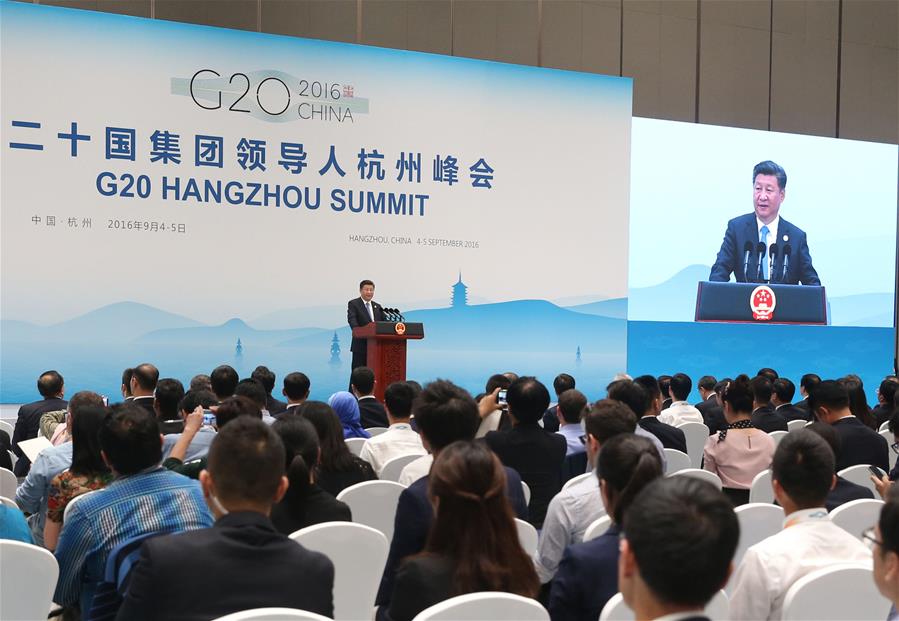Full coverage: G20 Hangzhou Summit
This year's G20 Summit has concluded with a joint communiqué, as leaders vow to strengthen coordination on policies to put the world economy right. And bilateral meetings on the sidelines have also grabbed global attention.

Chinese President Xi Jinping attends a press conference after the 11th summit of the Group of 20 (G20) major economies in Hangzhou, capital of east China's Zhejiang Province, Sept. 5, 2016. (Xinhua/Yao Dawei)
The spectacular opening gala of the G20 Summit in Hangzhou may have impressed the world, but when it comes down to serious business, world leaders still face daunting challenges.
The world's recovery remains weak after the 2008 financial crisis, with the global jobless rate almost reaching 6 percent. Growth in international trade has hit its lowest point in three decades.
Chinese President Xi Jinping urged G20 members to resist protectionism and foster innovation to boost growth. He said the global economy can hardly recover without open trade and coordinated macroeconomic policies among G20 members.
"I think China has confidence in its economy. It's a great role model for Brazil and other countries facing an economic recovery. The G20 Hangzhou Summit presented great opportunities for others to learn from China," said Michel Temper, Brazilian President.
Outside the summit, some notable meetings also grabbed headlines. President Xi met with his US counterpart Barrack Obama. Disagreements remain on thorny issues like the South China Sea, but one widely appreciated consensus was their climate change agreement.
"The actions taken by China and the United States, both of which are the two biggest emittors, I think are far-reaching. They are working for the people, they are working for the planet Earch. Sustainable development goals and climate change are deeply interlinked," said Ban Ki-Moon, UN Secretary-General.















